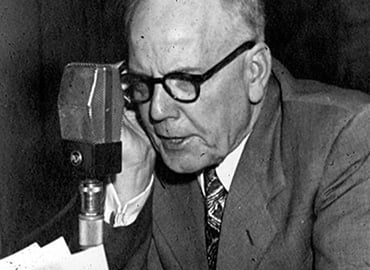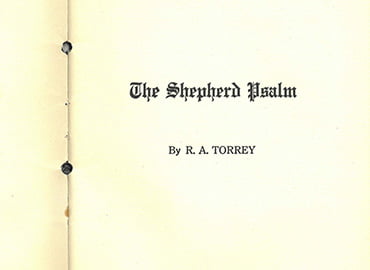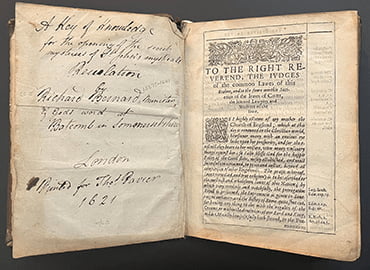Archives & Special Collections
 Academic Catalogs
Academic Catalogs

University catalogs from 1917 to 2007.
 Ancient Artifacts
Ancient Artifacts

Artifacts from the Holy Land, including small antiquities, primarily pottery from the time of Christ, as well as Greek and Roman coins. Other artifacts include a Greek wine cup and a Greek statuette of Eros.
 Bibles
Bibles

A series of rare and common Bibles, most in English. Includes an original printing of the Geneva Bible (1608, aka "Breeches Bible"), the LeClerc Illustrated Bible (1614), the Macklin Bible (1800), and fine facsimiles of the Gutenberg Bible, Codex Sinaiticus, and Codex Vaticanus.
 Biola Broadcaster
Biola Broadcaster

Biola Broadcaster was a monthly magazine that provided information on The Biola Hour radio program (also called The Bible Institute Hour).
 Biola Radio
Biola Radio

Recordings of the Biola Hour, and Feinberg Messages, as well as the Biola Hour Highlight Series, and Biola Radio Publications.
 Christian Comics Collection
Christian Comics Collection

Work by Christian creators and publishers, or mainstream comics that have Christian content.
 Conservatory of Music
Conservatory of Music

Menahem Pressler Masterclass videos, recordings and papers from Dr. William Lock's career, and works by music faculty.
 Events, Speakers, Conferences
Events, Speakers, Conferences

Recordings of Biola speakers, as well as recordings and documents from Biola’s Torrey, Missions, and Hispanic Conferences.
 Exhibition Catalogs
Exhibition Catalogs

Catalogs of the rotating contemporary art exhibitions from The Earl & Virginia Green Art Gallery.
 Hass Avocado Records
Hass Avocado Records

Patent papers, ledgers documenting trees, news clippings, correspondence, and more donated by Hass family members.
 History of Biola
History of Biola

Documents related to Biola’s history, as well as the history and selected correspondence related to the Fundamentals.
 Hunan Bible Institute
Hunan Bible Institute

Documents, film, and photos related to the Hunan Bible Institute.
 Hyatt Moore Art
Hyatt Moore Art

A list, with descriptions and locations, of Biola’s collection of paintings by Hyatt Moore.
 Institute for Spiritual Formation
Institute for Spiritual Formation

Lectures and presentations from the Institute of Spiritual Formation.
 King’s Business
King’s Business

A monthly publication of the Bible Institute of Los Angeles from 1910 to 1970.
 Library
Library

Instructions and Tutorials for select library databases, as well as photos and documents related to the library’s history.
 Louis T. Talbot Archive
Louis T. Talbot Archive

Photos and publications of Louis T. Talbot.
 McQuiston Civil War Documents
McQuiston Civil War Documents

Captain McQuiston's commission and promotion documents, one of which includes the signature of President Abraham Lincoln.
 Mission Films
Mission Films

Films to inform and encourage the Christian church, produced by Biola and its partners; mostly pre-1960.
 Publications
Publications

Books, pamphlets, and sermons published through the Biola. Primarily written by Biola leadership or faculty.
 Rare Books
Rare Books

Many books published before 1700, others that are held by few libraries, and copies that are valuable for other reasons. Examples include The Wordless Book from 1890 (Gospel Book Depot, London) and a signed copy of Ray Bradbury's Fahrenheit 451.
 Biola University
Biola University